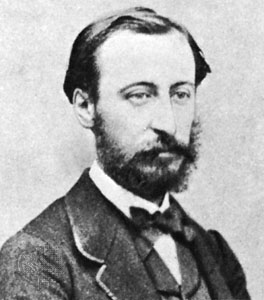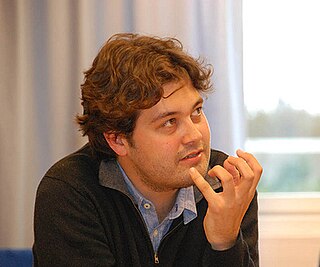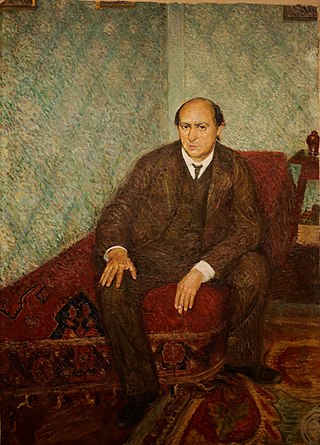Related Research Articles

The Violin Concerto in D minor, Op. 47 of Jean Sibelius, originally composed in 1904 and revised in 1905, is the only concerto by Sibelius. It is symphonic in scope and included an extended cadenza for the soloist that takes on the role of the development section in the first movement.

Paavo Allan Engelbert Berglund was a Finnish conductor and violinist.
Peter Racine Fricker was an English composer, among the first to establish his career entirely after the Second World War. He lived in the US for the last thirty years of his life. Fricker wrote over 160 works in all the main genres excepting opera. He was a descendant of the French playwright Racine.
Ruth Dorothy Louisa ("Wid") Gipps was an English composer, oboist, pianist, conductor and educator. She composed music in a wide range of genres, including five symphonies, seven concertos and many chamber and choral works. She founded both the London Repertoire Orchestra and the Chanticleer Orchestra and served as conductor and music director for the City of Birmingham Choir. Later in her life she served as chairwoman of the Composers' Guild of Great Britain.
The Cello Concerto in B minor, Op. 104, B. 191, is the last solo concerto by Antonín Dvořák. It was written in 1894 for his friend, the cellist Hanuš Wihan, but was premiered in London on March 19, 1896, by the English cellist Leo Stern.

The Piano Concerto No. 2 in G minor, Op. 22 by Camille Saint-Saëns was composed in 1868 and is probably Saint-Saëns' most popular piano concerto. It was dedicated to Madame A. de Villers. At the première on 13 May the composer was the soloist and Anton Rubinstein conducted the orchestra. Saint-Saëns wrote the concerto in three weeks and had very little time to prepare for the première; consequently, the piece was not initially successful. The capricious changes in style provoked Zygmunt Stojowski to quip that it "begins with Bach and ends with Offenbach."
Ralph Vaughan Williams dedicated his Symphony No. 4 in F minor to Arnold Bax.
The Piano Concerto No. 2 in G major, Sz. 95, BB 101 of Béla Bartók is a musical composition for piano and orchestra. The work, which was composed between 1930 and 1931, is notorious for being one of the most difficult pieces in the repertoire. Playing time is 26–29 minutes.

Antonio Brosa was a Spanish violinist, mostly active in the UK.
Stanley Bate was an English composer and pianist.
The Concerto for Two Violins and String Orchestra, Op. 77 by Malcolm Arnold was finished in 1962. It is in three movements:
- Allegro risoluto
- Andantino
- Vivace – Presto
Ross Pople is a New Zealand-born British conductor. He is the principal conductor of the London Festival Orchestra. He has worked with Yehudi Menuhin, Clifford Curzon, David Oistrakh, Kentner, George Malcolm, Sir Adrian Boult, Rudolf Kempe, Benjamin Britten, Witold Lutosławski, Krzysztof Penderecki, Michael Tippett, Georg Solti, Leonard Bernstein, George Benjamin, John Casken, Edwin Roxburgh, Luciano Berio, John Tavener, Malcolm Arnold, Pierre Boulez as well as many other major orchestras, choirs and soloists.
Martin Yates is a British conductor. After attending Kimbolton School, he studied at the Royal College of Music and Trinity College of Music, London, where his teachers included Bernard Keeffe (conducting), Richard Arnell (composition), Ian Lake, Jakob Kaletsky and Alan Rowlands (piano), and Douglas Moore and John Burden.
Charles William Eric Fogg was an English composer, conductor and BBC broadcaster. His early works were influenced by Igor Stravinsky, though his later pieces owe more to Granville Bantock and Richard Strauss and even William Walton. Much of his music has been lost.

Lawrence Power is a British violist, born 1977, noted both for solo performances and for chamber music with the Nash Ensemble and Leopold String Trio.

Alissa Firsova is a Russian-British classical composer, pianist and conductor.

The Chamber Symphony No. 1 in E major, Op. 9 is a composition by Austrian composer Arnold Schoenberg.
Peter Gregory Rose is a conductor, composer, arranger, and music director. He has conducted orchestral, choral and ensemble premieres throughout Europe and the Far East.
Stanley Herbert Wilson was a British composer and music teacher.
Eva Kathleen Merritt was a British conductor who led her own orchestra from the 1920s into the 1970s. She was best known as a pioneering woman conductor, and for her local music-making in Petersfield, Hampshire.
References
- ↑ Hartley, Cathy. A Historical Dictionary of British Women (2013), p 372
- ↑ Obituary, The Musical Times, April 1973, p 415
- ↑ Radio Times, Issue 574, 30 September 1934, p 45
- ↑ The Times, 6 June 1933, p 15
- ↑ Musik und Gender im Internet, Hamburg (in German)
- ↑ 'London Concerts' in The Musical Times, July, 1951, p 324
- ↑ Note: The Times obituary initially cited Riddick as "the first woman to conduct in the Royal Festival Hall". But it later ran a correction when Marjorie Jaco wrote in to say that she had conducted the choir of the Church of the Holy Cross, Crediton in the finals of the National Music Festival on June 22, 1951. The Times, 3 March 1933, p 16
- 1 2 Surrey Philharmonic Orchestra website
- ↑ The Daily Telegraph, 26 May 1938, p 12
- ↑ Radio Times, Issue 1095, 24 September 1944, p 17
- ↑ Palmer, Russell. British Music (1948), p 203
- ↑ Obituary, The Times, 10 February 1973, p 18
- ↑ Bromley Symphony Orchestra
- ↑ Petersfield Orchestra
- ↑ Ruth Gipps interviewed on BBC Radio Woman's Hour, March 1989, excepted in Composer of the Week, 11 March 2021, 2.40 minutes in
- ↑ Brooks, Jeanice. 'Telling the Story of Nadia Boulanger's Conducting Career', in The Journal of Musicology, Vol. 14, No. 1 (Winter, 1996), pp. 92-116